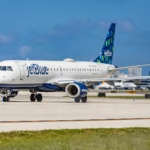Air Passenger Rights (APR) in Canada has been battling against the refusal of the Canadian Transportation Agency (CTA) to offer refunds for cancelled flights. Recently, the Federal Court of Appeal in Canada dismissed a claim by the CTA that its Statement on Vouchers issued by Canadian carriers is legally binding.
The Statement on Vouchers Issued by the CTA

The CTA believes that generally speaking, an appropriate approach in the current context could be for airlines to provide affected passengers with vouchers or credits for future travel, as long as these vouchers or credits do not expire in an unreasonably short period of time.
This statement was issued on March 25, 2020. Canadian carriers, including Air Canada and Westjet, rely on this statement to issue vouchers rather than offer refunds. A refund for a cancelled flight is a well-established legal principle and generally operates well – in normal circumstances. However, as the CTA points out, the coronavirus pandemic is an unprecedented situation. Enforcing the legal right to a refund now involves the practicality of compliance.
Practical Problems Relating to the Issue of Refunds During the Pandemic
When a legal right to a refund following a cancelled flight was established it was a relatively easy process. Vouchers were more readily accepted as a viable solution. In the past few months, airlines have faced a deluge of requests for refunds. Millions of passengers are requesting refunds rather than taking a voucher they may not be able to use for several months. For most airlines, it is a complex and time-consuming process.

Payment for a flight generally involves a third party, the payment provider. It charges the passenger’s card and transfers the money into an acquiring bank. This bank then sends the money to the airline. A refund involves a reversal of this process. This is a time consuming and labour-intensive process requiring extra staff. It is the reason passengers have to wait several months for a refund as the airlines struggle to process millions of refund requests.
It has become clear that the current systems cannot cope. Better, passenger-driven systems are available. It is time for airlines to make a change. Wizz Air already has an automated system in place.
Automated Refund Systems for Airlines

Wizz Air uses a system that can process refunds in thirty days. The system does not require an additional workforce and by June 4 the airline had processed two-thirds of its refunds. A passenger who accepts a voucher rather than a refund is rewarded by an extra 20% on the ticket price. This would appear to be the ideal solution. It costs the airline less and protects them in the future.
Is the offer of an enhance voucher more attractive than a refund? Let us know your views in the comments.









